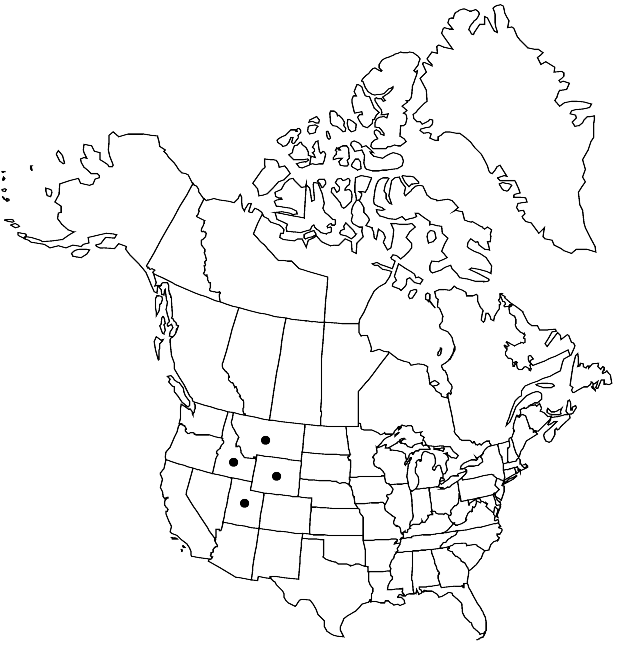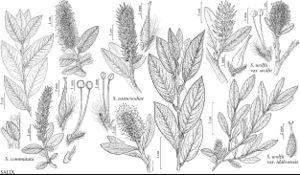Salix wolfii var. idahoensis
Bot. Gaz. 40: 378. 1905.
Plants 0.1–2 m. Stems: branches yellow-gray or yellow-brown, pubescent or pilose; branchlets yellow-green or red-brown (darker in age), sparsely to moderately densely pubescent, hairs wavy or geniculate. Leaves: petiole shallowly grooved adaxially, 3–10 mm, pubescent or villous adaxially; largest medial blade very narrowly elliptic to elliptic, or narrowly oblanceolate, apex acute to acuminate, abaxial surface villous, adaxial densely silky or villous; juvenile blade long-silky abaxially. Catkins: pistillate very densely flowered, stout or subglobose, 8.5–38 × 5–12 mm, flowering branchlet 1–11 mm; floral bract 1–2 mm. Staminate flowers: abaxial nectary 0–0.2 mm, adaxial nectary 0.6–1.1 mm. Pistillate flowers: adaxial nectary oblong, ovate, or flask-shaped, 0.4–1.1 mm, longer than or, rarely, equal to stipe; stipe 0–0.4 mm; ovary pubescent or tomentose, hairs in streaks or patches; ovules 8–16 per ovary; stigmas flat, abaxially non-papillate with rounded or pointed tip, or slenderly or broadly cylindrical. 2n = unknown.
Phenology: Flowering early-mid Jun.
Habitat: Sedge meadows along stream and lake margins, drainageways, around springs
Elevation: 2100-3100 m
Distribution

Idaho, Mont., Utah, Wyo.
Discussion
Selected References
None.
